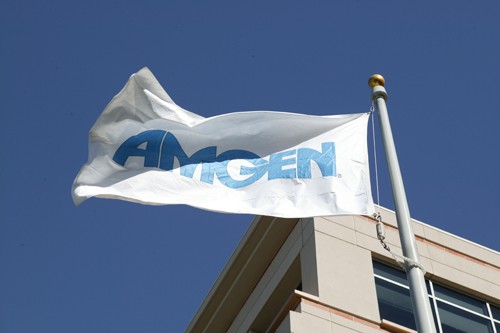
An FDA advisory committee has voted in favour of approving Amgen’s virus-like melanoma therapy, despite questions about its impact on survival.
The panel voted 22 to one in favour of approving T-Vec (talimogene laherparepvec) on the strength of the phase III OPTiM study, which found that the response rate to the immunotherapy was higher than in a control arm treated with granulocyte macrophage colony-stimulating factor (GM-CSF).
The verdict is a boost for Amgen after the FDA reviewer questioned in a briefing paper published earlier this week whether T-Vec should be approved on the basis of durable response rate (DRR) – defined as a complete or partial tumour response lasting six months or more – given that it showed a questionable impact on survival.
Given the number of new drugs coming into the market for melanoma – including the new PD-1 inhibitors form Bristol-Myers Squibb (BMS) and Merck & Co – the reviewer asked whether T-Vec “offers an acceptable benefit-risk profile for the proposed indicated population.” Amgen revealed earlier this month that the drug was unable to improve overall survival in the OPTiM trial.
The panel also had doubts about T-Vec’s effect on patient survival but concluded it had a sufficiently favourable risk-benefit profile to warrant approval. The FDA doesn’t have to take its advice but generally does so, and is due to deliver its verdict by October 27, having extended its review time by three months.
T-Vec has been likened to a virus because when it is injected directly into a tumour it replicates causing the tumour cell to rupture and die, and causes white blood cells to mobilise and target the cancer. Amgen acquired the drug as part of its takeover of BioVex in 2011, valued at up to $1bn with $425m paid upfront.
Analysts consider that the drug has modest potential in melanoma as a monotherapy as it needs to be injected directly into the tumour, but it could see sizeable take-up if it shows promise as a combination therapy with other immuno-oncology drugs, particularly PD-1 inhibitors. Amgen is already conducting trials of T-Vec alongside Merck’s Keytruda (pembrolizumab).
Meanwhile, the panel’s endorsement is also a boost for other companies developing so-called oncolytic virotherapies, including Canada’s Oncolytics Biotech and Genelux of the US.




